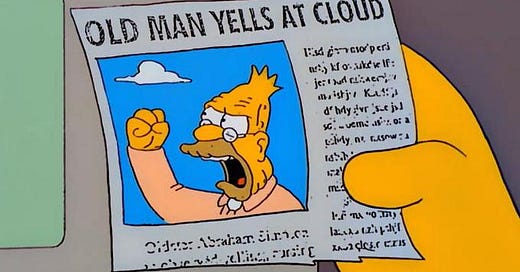Last week Mixmag published an interview with Joy Orbison. It’s probably the most revealing “on the record” conversation that the UK artist has ever had, delving deep into his family history, his personal insecurities and his ever-evolving relationship with dance music. The whole thing is worth a read, but there’s one particular passage that really grabbed me:
“… we're getting to a point where the spirit and innovation that was in dance music, is not in dance music any more,” he reflects, suggesting the “people who would have been making dance music are now making other forms of music” such as drill, hip hop and “weird pop music — you didn't have that when I was growing up.”
I think he’s right.
Don’t worry, I’m not about to launch into a cliché “dance music is dead” diatribe. People—usually folks struggling to come to grips with the fact that they’re simply getting older—have been trotting out that argument for decades, and they almost always wind up sounding like the personification of the “old man yells at cloud” meme.
Even Joy Orbison made sure to clarify that his thoughts aren’t rooted in nostalgia for the “good old days,” stating:
“I hate the idea of being like ‘it’s all shit now,’ because I don't think it is.”
Dance music isn’t dead. Far from it. Even after weathering two-plus years of a global pandemic, the dance music industry appears to be in decent shape. Clubs are filling up again. Summer festivals are selling out. And as for the music itself, there’s certainly no shortage of new material finding its way into the world. On the contrary, it’s quite possible that more dance music is being released now than at any point in the genre’s history. Vinyl plants literally can’t keep up with demand, and thanks to platforms like Bandcamp, artists can (and often do) sell their tunes without having to worry about things like getting signed or working with a label. Even the streaming sphere is bursting with new dance music, as producers—both new and established—continue to post their tunes on Spotify / Apple / Amazon / etc., despite the fact that doing so is unlikely to generate much in the way of income. (In such a crowded landscape, the mere opportunity—no matter how remote—to get noticed is often enough to get people to engage and “play the game.”)
So, if the live music industry is getting back on its feet and the veritable firehose of new dance music releases continues unabated, what exactly is the problem? What is Joy Orbison talking about? Loath as I am to speak on his behalf, I’ll instead share my own opinion: dance music is very much alive, but creatively, it’s suffering from an acute lack of energy and innovation.




